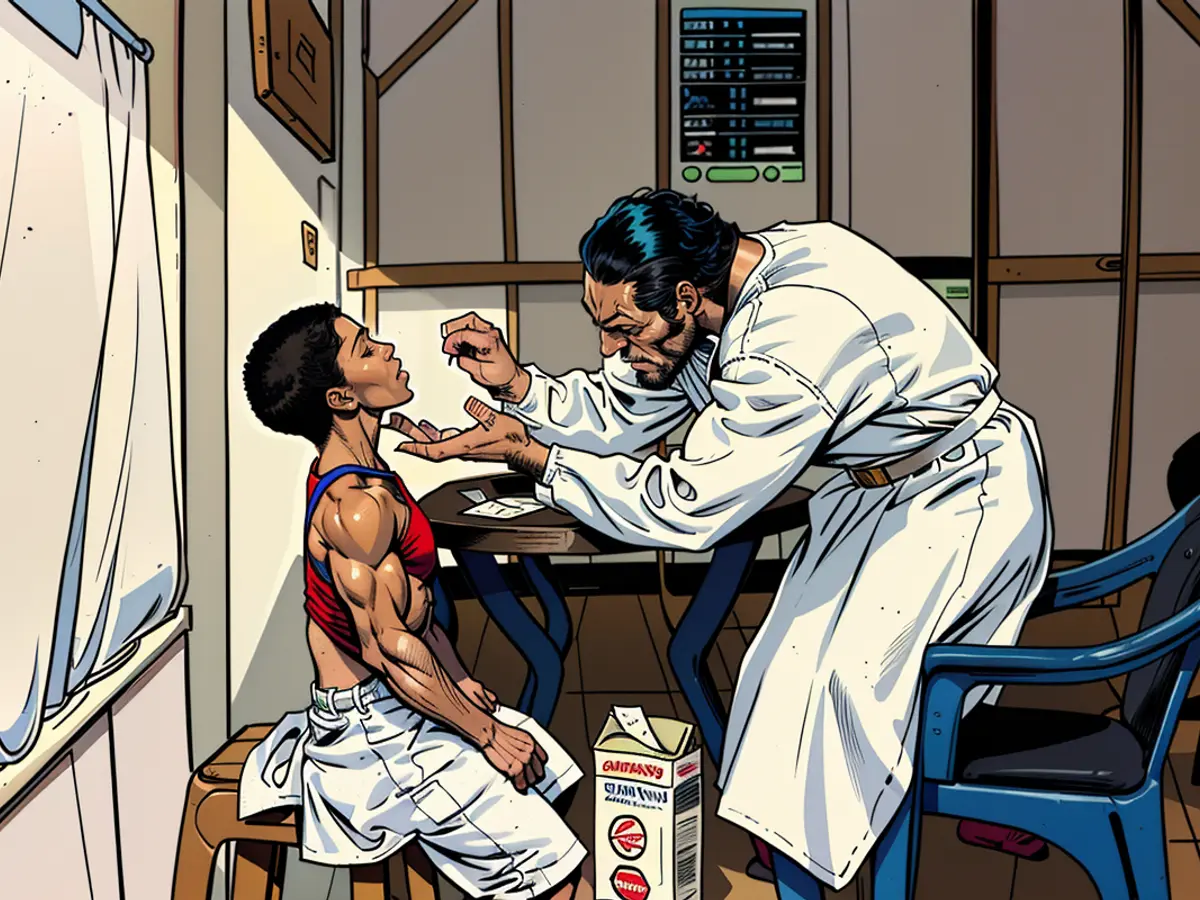Deadlier strain of mpox spreads to more countries, raising officials’ alarm
Levels of mpox, formerly known as monkeypox, in the Democratic Republic of Congo have reached more than 14,000 reported cases and 511 deaths, and it has spread to four neighboring countries that had not previously reported cases, according to the World Health Organization- Burundi, Kenya, Rwanda and Uganda.
WHO officials said Wednesday that they plan to convene an emergency committee soon to determine whether the outbreak is a public health emergency of international concern.
The US Centers for Disease Control and Prevention also issued a health advisory Wednesday to address the “risk of additional spread,” recommending that physicians maintain a “heightened index of suspicion for mpox” in people who recently traveled from the DRC or bordering countries.
Mpox is a viral disease that can spread easily between people and from infected animals. It can spread through close contact such as touching, kissing or sex, as well as through contaminated materials like sheets, clothing and needles, according to WHO. Symptoms include a fever, a painful rash, headache, muscle and back pain, low energy and enlarged lymph nodes.
For decades, the disease had largely been found in Central and West Africa, but it also began spreading in Europe and North America in 2022.
Mpox is characterized by two genetic clades, I and II. A clade is a broad grouping of viruses that has evolved over decades and is a genetic and clinically distinct group.
Clade Ib, which has been circulating in the DRC for years, causes more severe disease and is responsible for the current outbreak there. Although it is deadlier, there is no evidence to suggest that it is more transmissible, according to Dr. Rosamund Lewis, the WHO technical lead for the global mpox response.
Clade II was responsible for the global outbreak that began in 2022, according to the CDC.
Since January 2023, the DRC has reported the largest number of suspected clade I mpox cases on record: more than 22,000, with over 1,200 deaths. The number of cases reported in the first six months of this yearmatches that reported for all of last year, WHO Director-General Dr. Tedros Adhanom Ghebreyesus said at a news conference Wednesday.
The risk of further spread in the region is moderate for the general population and high in the DRC, Lewis said. WHO assesses risk on a scale of low, moderate, high or very high, and it has not recommended travel restrictions for affected countries at this time.
No cases of clade I mpox have been reported outside central and eastern Africa, and the CDC classifies the risk that it will be brought in to the US as “very low.” However, the agency continues to recommend mpox vaccination for people who are exposed to or at high risk of catching the virus.
The WHO has begun the Emergency Use Listing process for both approved mpox vaccines, aiming to expedite access for lower-income countries that have not granted their own approval. Two countries in the region, Nigeria and the DRC, have approved mpox vaccines for emergency use.
The CDC advises anyone who has traveled to the DRC or its neighboring countries in the past 21 days and who has developed an unexplained rash to seek medical care immediately and avoid contact with others.
Get CNN Health's weekly newsletter
- Sign up here to get The Results Are In with Dr. Sanjay Gupta every Tuesday from the CNN Health team.
Stopping transmission will require a comprehensive and international response, Tedros said. WHO has developed a regional response plan requiring $15 million and has released $1 million from the WHO Contingency Fund for Emergencies to support of the response, he said.
The organization has also called for international support and cooperation to quell the outbreak.
“It was frankly amazing that even in the large-scale outbreak we had around the world, there was no funding made available for the control of that at international level,” said Dr. Michael Ryan, executive director of WHO’s Health Emergencies Program. “We’re having to, once again, dip into the contingency fund for emergencies to begin the process. It’s very important that we have a better understanding of this virus. It’s a virus that can be contained. It can be contained quite straightforwardly, if we do the right things at the right time.”
Health officials are urging physicians to maintain a "heightened index of suspicion for mpox" in individuals who have recently traveled from the Democratic Republic of Congo or surrounding countries, due to the increased risk of spread. The US Centers for Disease Control and Prevention recommends regular hand washing, avoiding close contact with sick individuals, and avoiding contact with contaminated materials as basic measures to promote health and prevent the spread of mpox.








